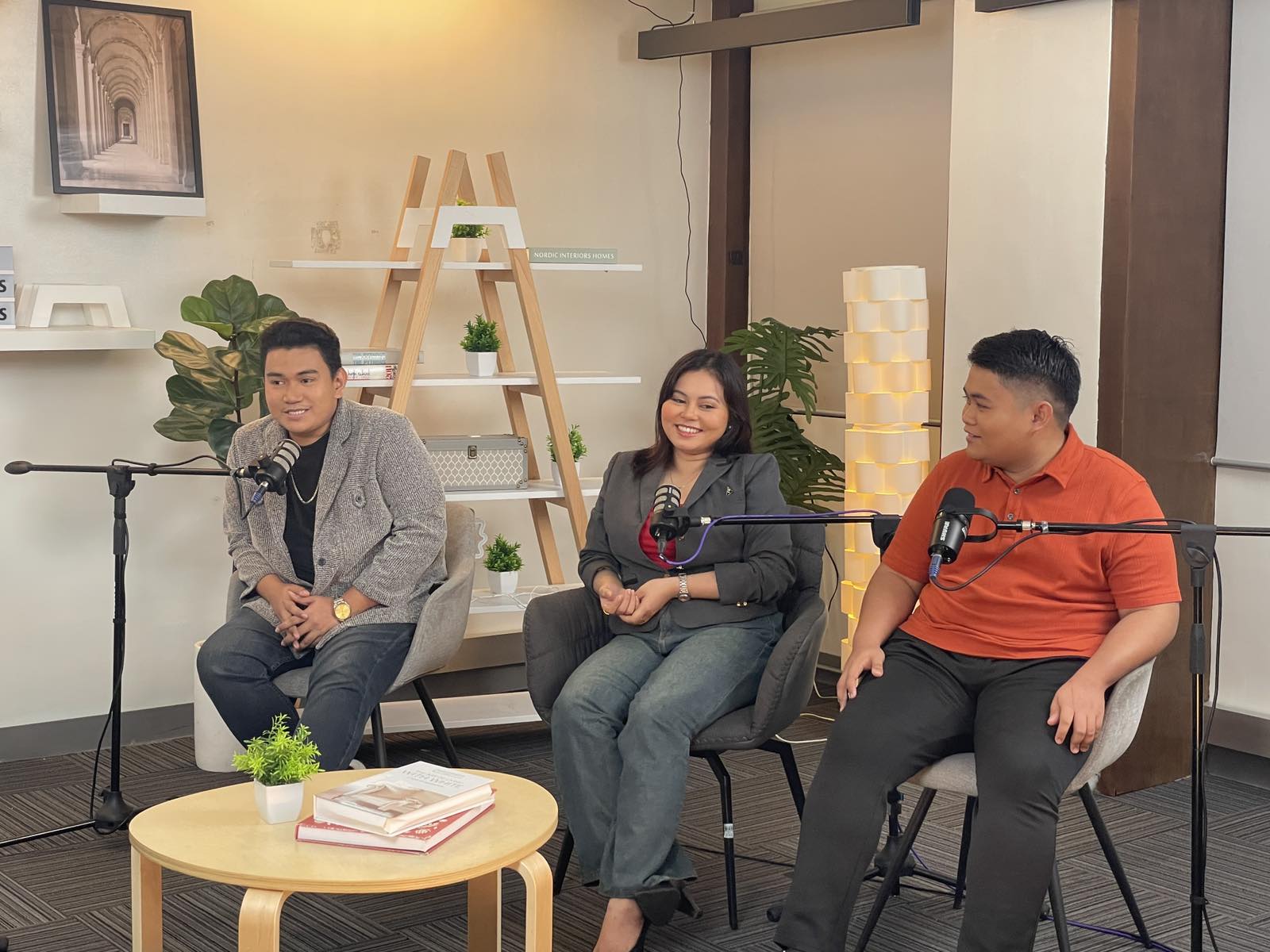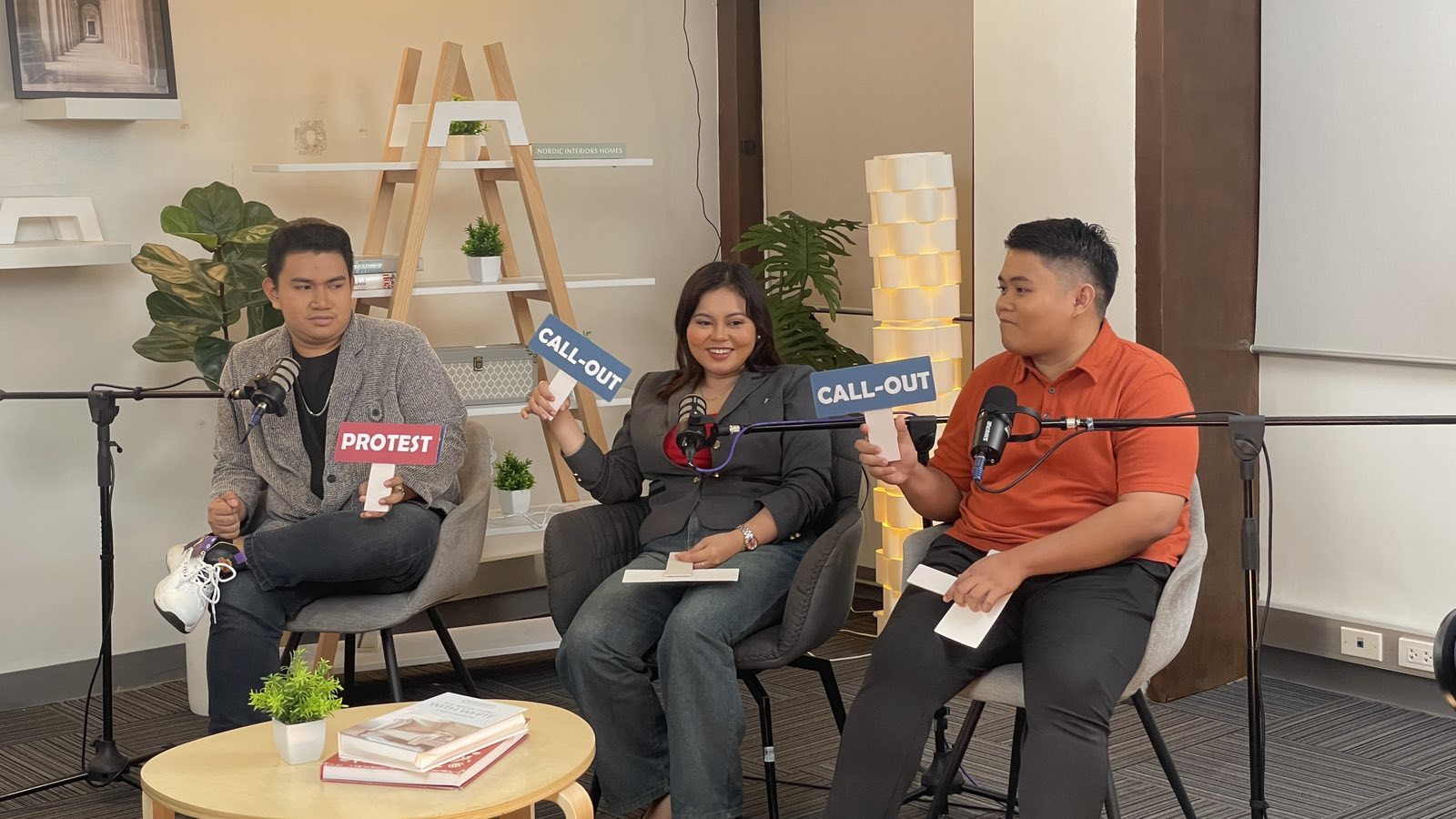
By Marishka Mendoza | PTV Public Affairs Intern
In today’s digital age, social media has emerged as a new form of protest. Platforms such as Facebook, X (Twitter), TikTok, and Instagram are now being used to amplify people’s voices and spread public calls for change.
This is the focus of the latest episode of Iskoolmates, where students from ICCT Colleges and STI College Balagtas join the discussion; exploring whether digital activism is considered a genuine action, or if it remains confined to the online space.
Aside from that, the episode also tackles another trending and controversial topic, the issue of so-called “nepo babies”.
ICCT Colleges is represented by Patrick Medina and Miguel Ayroso, while STI College Balagtas is represented by Ella Joy Gualvez.
Online protests vs. public protests
The discussion started with the advantages of online protest. The guests highlighted that through social media, protests can spread quickly—reaching a wider audience by being accessible through screens and within grasp of their fingertips.
Miguel and Patrick also added that even those who cannot physically join rallies, such as introverts, are still allowed to participate in collective action because of social media.
For Ella, online protest and street protest are interconnected. She explained that people are fighting for the same reason, the difference only lies in where people choose to voice it out.
Miguel, however, raised a concern about people who share posts online without fully grasping the context. He noted that many tend to share content simply because it is trending online.
Patrick added to this concern, reminding that those individuals who only ride on issues should first understand the whole context of a post and be mindful of what message they amplify on social media.

Proof of credibility
The discussion then moved to the topic of online misinformation, wherein the participants pointed out that people who want to stay informed and post on social media should also be aware of the risks that come with it.
Miguel shared: “Tingnan natin kung verified tapos credible [ang] source—[halimbawa,] ‘yong mga news channels natin. At kung aligned [ito] sa ideas ko, shini-share ko.” For him, it will help people to avoid spreading false information that could harm others if it came from credible sources.
Activism vs. personal attack
The conversation heated up when it shifted to the controversy involving the children of politicians allegedly connected to irregularities in flood control projects. They are being labeled as “nepo babies” on social media and they have drawn criticism for flaunting their wealth.
Ella shared her perspective, saying, “Valid yung outrage ng Filipinos for me, kasi kung based on investigation na galing nga talaga sa ghost projects yung pinang-fo-flaunt nila ng yaman, then inequality na agad ‘yon.”
She further explained that it is unfair for those connected to corrupt politicians to get what they want, while ordinary Filipinos struggle just to provide for their basic needs.
The guests further emphasized that as activists, people should learn to call out issues responsibly. It is to stick on the issue itself rather than resorting to personal attacks.

Social media as a platform for protest
The discussion came to a close when the hosts asked the guests about the lessons they had learned from using social media as a platform for protest.
The guests stressed the importance of being committed to the causes they advocate online, for it reflects their own name and credibility online.
Ella also added, “Kung gusto mong may real change, kailangan mong maging matapang. Because people will call you out kung anong mali mo, and not everyone will believe the things that you believe.”
And finally, the discussion concluded with Ella responding to another key question: “How [does] online outrage translate into real change?” According to her, consistency is the key: What you advocate online should also be applied in your own life, as this makes you a good example and inspires others to act.
Show hosts James and Jules wrapped up the episode by sharing their takeaways, emphasizing that no single form of protest should bear more weight or importance above the rest.
They noted that whether it is expressed online, in public spaces, or even through silent support by those who may not actively join protests, what matters most is the unity of the people and the strength of the collective call.
dac/avds
